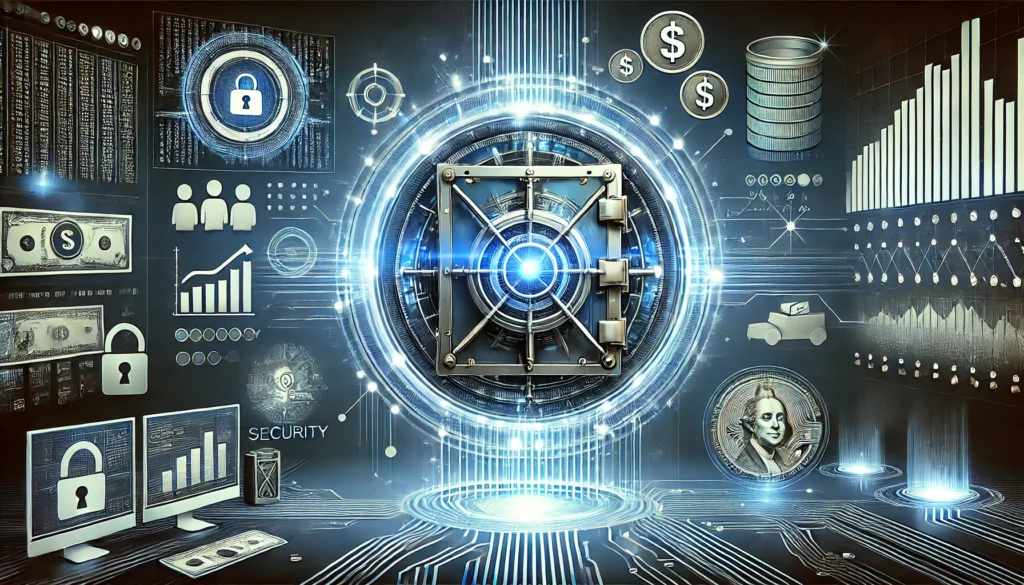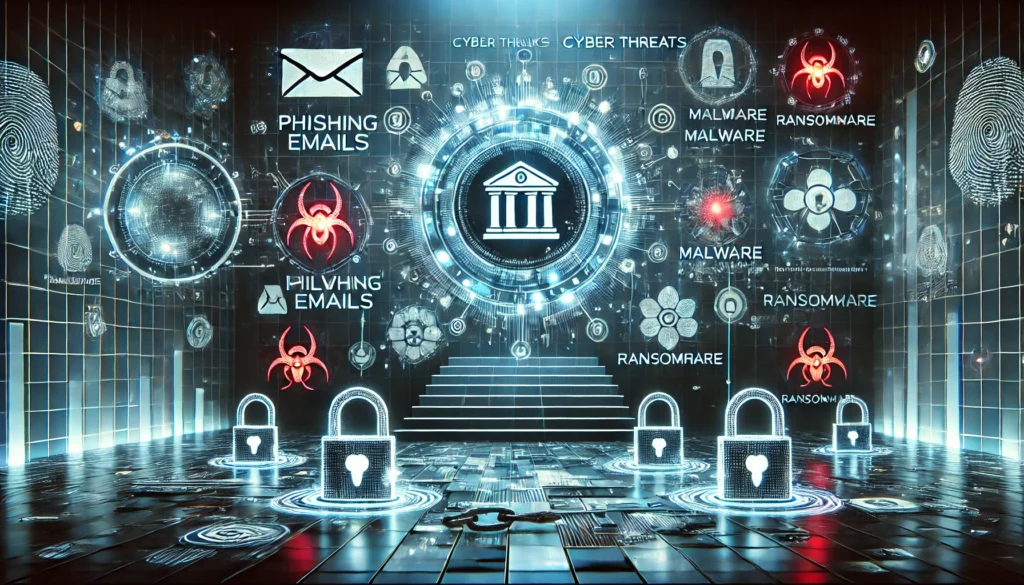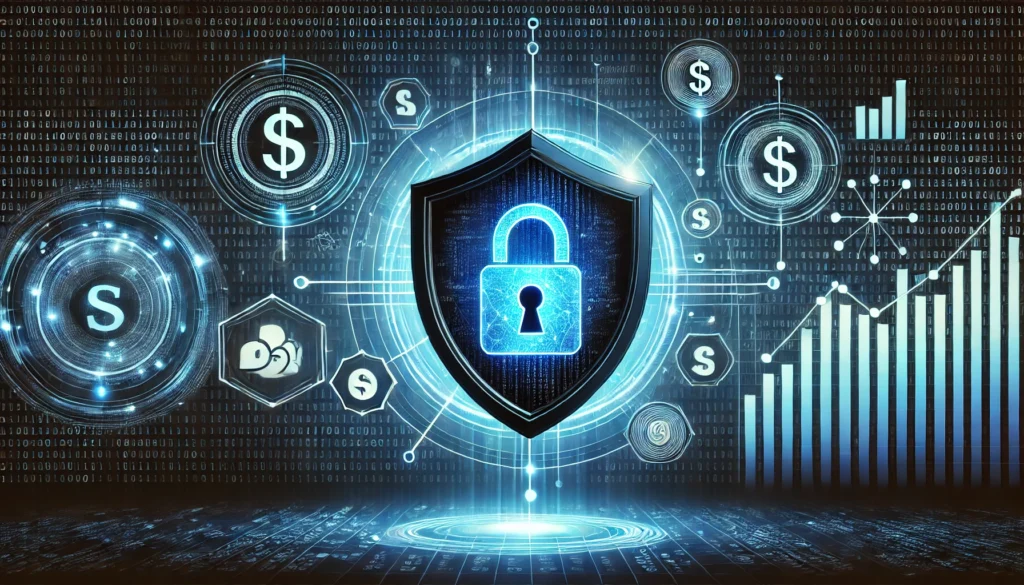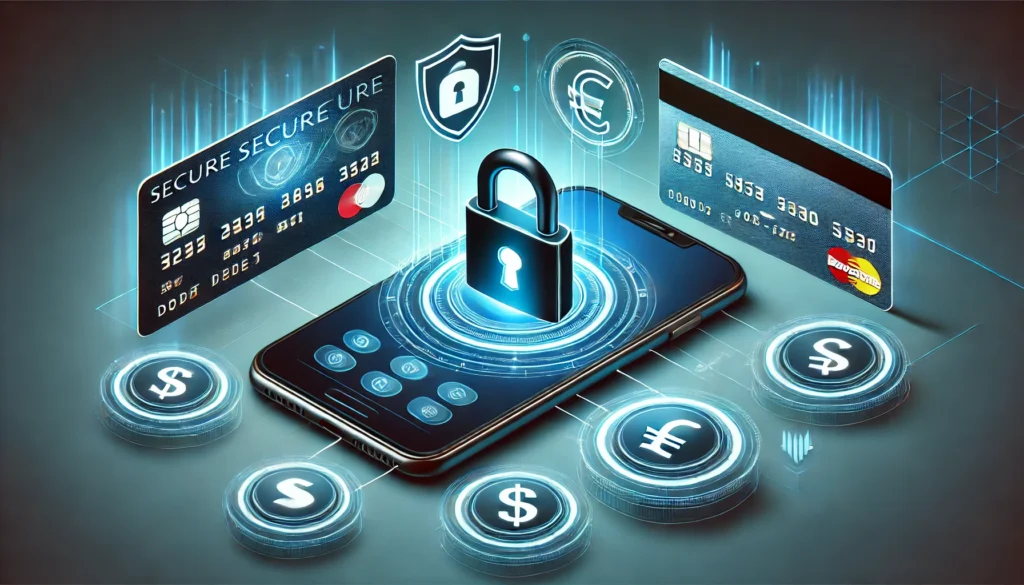In this posts, we will explained the significance of cybersecurity in ensuring monetary transactions. In today’s advanced age, the comfort of online money related exchanges has changed the way individuals oversee their cash. Whether it’s paying bills, shopping online, exchanging reserves, or getting to bank accounts, innovation has made money related errands simpler than ever some time recently. Be that as it may, with the rise of advanced keeping money and online budgetary administrations comes the hazard of cybercrime. Cybersecurity has ended up an fundamental component of securing these money related exchanges and the delicate information they include. This article investigates the significance of cybersecurity in shielding monetary exchanges, the dangers it makes a difference relieve, and the measures people and businesses can take to ensure themselves.
Understanding Cybersecurity
Cybersecurity alludes to the hone of securing computers, systems, and information from unauthorized get to, assaults, or harm. It includes executing a run of advances, forms, and hones that guarantee the secrecy, keenness, and accessibility of information. In the setting of money related exchanges, cybersecurity points to anticipate unauthorized get to to touchy monetary data, ensure clients from extortion, and guarantee that advanced budgetary frameworks stay operational without disruption.
The Developing Significance of Cybersecurity in Finance
As budgetary frameworks gotten to be progressively advanced, the significance of cybersecurity has developed essentially. Nowadays, millions of exchanges are prepared online each day, and the monetary segment is a major target for cybercriminals. The information traded amid these exchanges frequently incorporates by and by identifiable data (PII), account numbers, and monetary points of interest, making it a prime target for programmers looking to take cash or commit personality theft.

Some common money related exchanges that require strong cybersecurity include:
- Bank Exchanges: Sending or accepting cash between accounts.
- Online Buys: Utilizing credit or charge cards to shop online.
- Versatile Installments: Utilizing apps like Apple Pay or Google Pay to make transactions.
- Ventures: Exchanging stocks or overseeing speculations online.
- Cryptocurrency Exchanges: Buying, offering, or exchanging computerized currencies.
Sorts of Cybersecurity Dangers in Money related Transactions
Money related trades are frail to distinctive sorts of cyber threats, which can cause extraordinary budgetary incidents and hurt to the reputation of financial instruct. Here are a few of the most common sorts of cybersecurity threats:

1. Phishing Attacks
Phishing is one of the most common shapes of cybercrime. It incorporates beguiling individuals into giving their person or budgetary information by envisioning to be a trusted substance. Phishing emails regularly show up to come from authentic sources, such as banks, online retailers, or installment suppliers. These emails might inquire beneficiaries to tap on a connect or give delicate data, such as login qualifications, credit card numbers, or social security numbers.
2. Malware
Malware alludes to noxious program that is planned to harm or disturb computer frameworks. In the setting of money related trades, malware can be utilized to take sensitive budgetary information, screen client activity, or choose up unauthorized get to to bank accounts. Common sorts of malware join contaminations, spyware, ransomware, and Trojans. Once presented on a user’s contraption, malware can silently collect and transmit data without the user’s information.
3. Man-in-the-Middle Attacks
A Man-in-the-Middle (MitM) assault happens when a programmer mediation communication between two parties, such as between a client and their bank. In this sort of assault, the programmer can listen stealthily on the trade, modify the information, or take data such as login accreditations or installment points of interest. This sort of assault is particularly unsafe for monetary exchanges that take put over unsecured systems, such as open Wi-Fi.
4. Information Breaches
A information breach happens when unauthorized people pick up get to to delicate data, such as client accounts, credit card subtle elements, or other individual information. Programmers frequently target huge budgetary educate or installment processors in trusts of getting expansive databases of client information. Once uncovered, this information can be utilized for character burglary or false transactions.
5. Ransomware
Ransomware is a sort of malware that scrambles a user’s records or locks them out of their frameworks until a deliver is paid. For money related educate, a ransomware assault might disturb operations, solidify accounts, or uncover touchy client information. Cybercriminals frequently request installment in cryptocurrency to dodge traceability, advance complicating the recuperation process.
6. Credit Card Skimming
Credit card skimming is the unlawful act of capturing the information put away on a credit card’s attractive stripe, ordinarily through the utilize of covered up gadgets known as skimmers. Cybercriminals frequently put these skimmers on ATMs, point-of-sale terminals, or gas station pumps to capture the data of clueless clients. Once the information is stolen, it can be utilized to make false transactions.
How Cybersecurity Secures Budgetary Transactions
Cybersecurity plays a critical portion in securing cash related trades by securing the systems, frameworks, and data included in these trades. There are a few strategies utilized to guarantee the security of money related information and anticipate cyberattacks. These incorporate encryption, multi-factor verification, secure associations, and nonstop monitoring.

1. Encryption
Encryption is a prepare that changes over information into a code to anticipate unauthorized get to. In monetary exchanges, encryption is utilized to secure delicate data, such as credit card numbers or login accreditations, when they are transmitted over the web. Solid encryption calculations guarantee that indeed if information is catching by cybercriminals, it cannot be examined or utilized without the decoding key.
2. Multi-Factor Verification (MFA)
Multi-factor verification is a security handle that requires clients to give two or more confirmation variables some time recently they can get to their accounts or total a exchange. This includes an additional layer of security past fair a watchword. For illustration, a bank might require clients to enter a secret word and at that point affirm their personality through a content message, e-mail, or biometric filter. MFA makes a difference avoid unauthorized get to, indeed if a programmer has gotten a user’s password.
3. Secure Installment Gateways
Secure installment portals are fundamental for securing online exchanges. These frameworks act as middle people between clients and businesses amid online exchanges, guaranteeing that delicate data is safely transmitted. Installment doors utilize encryption and other security conventions to ensure credit card subtle elements and avoid unauthorized get to amid the exchange process.
4. Firewalls and Interruption Discovery Systems
Firewalls and interruption location frameworks (IDS) are utilized to screen and secure systems from cyberattacks. A firewall acts as a obstruction between a private organize and the web, sifting approaching and active activity to anticipate malevolent movement. IDS frameworks screen organize activity for signs of potential dangers, alarming chairmen if suspicious action is detected.
5. Normal Security Audits
Financial educate and businesses that handle online exchanges ought to frequently conduct security reviews to evaluate their cybersecurity pose. Reviews offer assistance recognize vulnerabilities, guarantee compliance with industry controls, and confirm that security conventions are up to date. By routinely investigating security frameworks, businesses can decrease the chance of cyberattacks and guarantee that client information remains safe.
Best Hones for Customers to Ensure Money related Transactions
While money related educate play a basic part in defending budgetary exchanges, buyers moreover have a duty to secure their individual data and budgetary information. Here are a few best hones that shoppers can follow:

1. Utilize Solid, Interesting Passwords
Consumers ought to utilize solid, interesting passwords for all monetary accounts and maintain a strategic distance from reusing passwords over numerous destinations. Solid passwords regularly incorporate a blend of letters (upper and lower case), numbers, and extraordinary characters. Secret word directors can be supportive in producing and safely putting away complex passwords.
2. Empower Multi-Factor Authentication
Where conceivable, buyers ought to empower multi-factor verification (MFA) on their monetary accounts. This includes an additional layer of security, making it harder for cybercriminals to pick up unauthorized get to, indeed if they have the redress password.
3. Dodge Open Wi-Fi for Budgetary Transactions
Public Wi-Fi systems, such as those found in cafes, air terminals, or lodgings, are frequently unsecured and can be a target for programmers. Shoppers ought to maintain a strategic distance from getting to touchy money related accounts or making exchanges over these systems. If vital, utilize a virtual private arrange (VPN) to scramble your association when utilizing open Wi-Fi.
4. Keep Computer program Up to Date
Regularly upgrading program, counting working frameworks, browsers, and security computer program, makes a difference ensure against vulnerabilities that seem be abused by programmers. Most program suppliers discharge upgrades that incorporate security patches, so it’s vital to introduce these overhauls as before long as they gotten to be available.
5. Be Watchful of Phishing Scams
Consumers ought to be cautious when getting spontaneous emails, content messages, or phone calls that inquire for individual or monetary data. Genuine companies will never inquire for touchy information through these channels. Continuously confirm the source of any communication some time recently giving information.
Conclusion:
In conclusion, cybersecurity plays a imperative part in securing money related exchanges from the ever-growing dangers postured by cybercriminals. As more monetary administrations move online, guaranteeing the security of these exchanges gets to be progressively imperative. By understanding the dangers and taking fitting safeguards, both businesses and shoppers can offer assistance secure delicate budgetary information and anticipate money related misfortunes. With solid cybersecurity measures in put, we can proceed to appreciate the benefits of computerized monetary exchanges whereas keeping our individual and money related data secure.
Read more posts:

